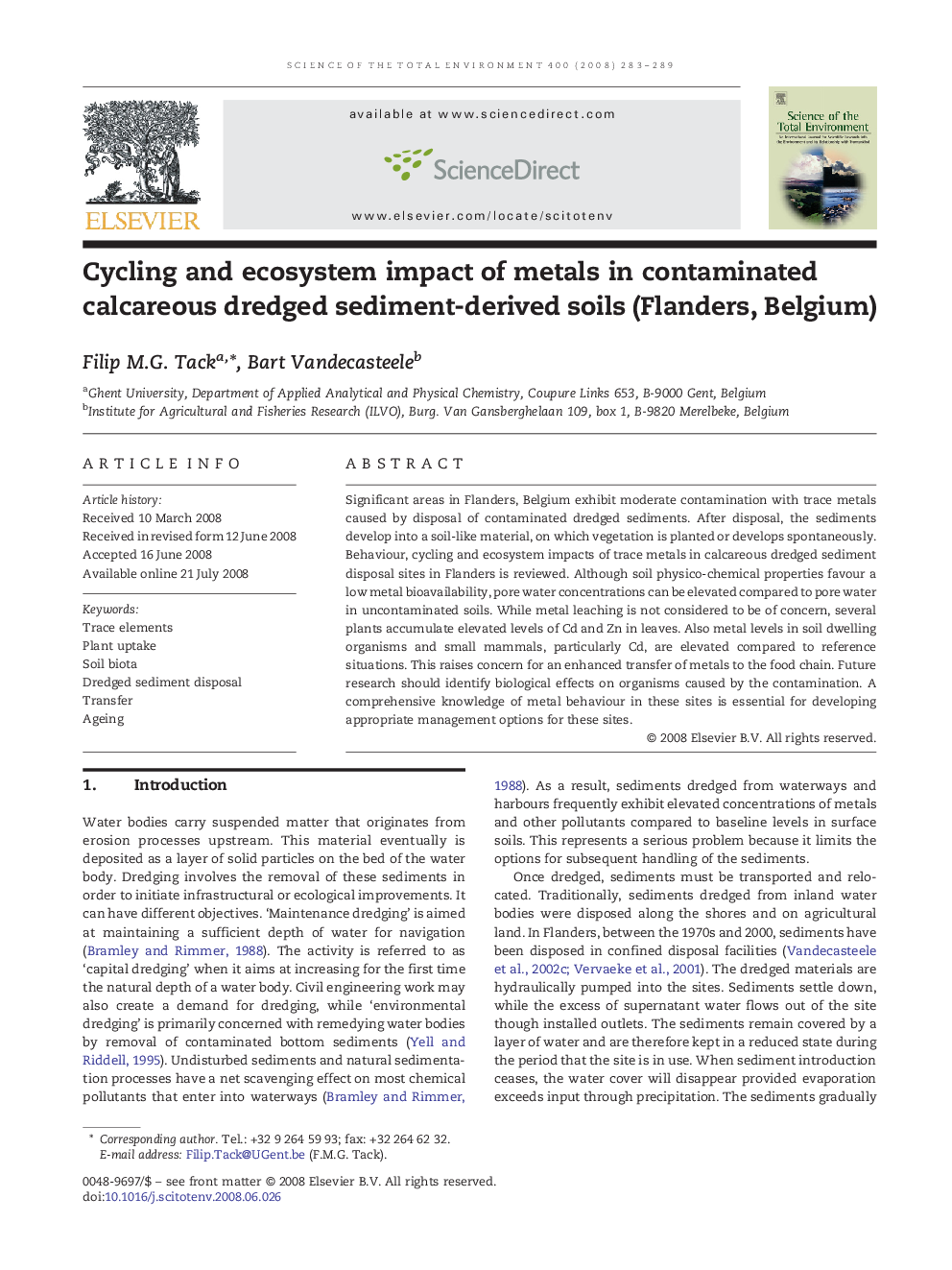| Article ID | Journal | Published Year | Pages | File Type |
|---|---|---|---|---|
| 4432549 | Science of The Total Environment | 2008 | 7 Pages |
Abstract
Significant areas in Flanders, Belgium exhibit moderate contamination with trace metals caused by disposal of contaminated dredged sediments. After disposal, the sediments develop into a soil-like material, on which vegetation is planted or develops spontaneously. Behaviour, cycling and ecosystem impacts of trace metals in calcareous dredged sediment disposal sites in Flanders is reviewed. Although soil physico-chemical properties favour a low metal bioavailability, pore water concentrations can be elevated compared to pore water in uncontaminated soils. While metal leaching is not considered to be of concern, several plants accumulate elevated levels of Cd and Zn in leaves. Also metal levels in soil dwelling organisms and small mammals, particularly Cd, are elevated compared to reference situations. This raises concern for an enhanced transfer of metals to the food chain. Future research should identify biological effects on organisms caused by the contamination. A comprehensive knowledge of metal behaviour in these sites is essential for developing appropriate management options for these sites.
Related Topics
Life Sciences
Environmental Science
Environmental Chemistry
Authors
Filip M.G. Tack, Bart Vandecasteele,
